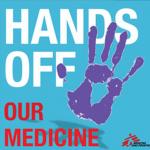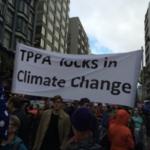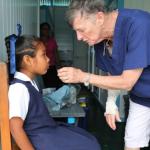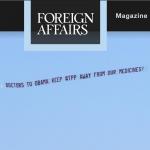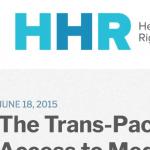Every faith and moral tradition embraces the principle that no human being should suffer without access to the care they need. For that reason, the faith community’s position on the Trans-Pacific Partnership should be clear: it must be rejected.
In addition to the TPP’s likely harmful impact on workers and our environment, this trade agreement would seriously undermine access to lifesaving medicines. As readers of this blog already know, millions of people in TPP countries, including here in the U.S., already struggle to afford the cost of the medicines they need.
Earlier this month, representatives of the Trans-Pacific Partnership Agreement (TPPA) parties announced they had concluded five years of negotiations by agreeing to final terms. The governments have not yet allowed the public to view the agreement, but a version of the TPPA’s intellectual property chapter published by Wikileaks reveals what I consider a potentially devastating setback to the human right to health.
Pope Francis has warned us about a system that elevates profits above people. "Today we also have to say 'thou shalt not' to an economy of exclusion and inequality," he wrote in his 2013 apostolic exhortation Evangelii Gaudium. "Such an economy kills." In the case of access to medicines, Francis' dire prediction is proven true thousands of times each day.
It is hard to imagine an injustice more intolerable than a sick person being blocked from receiving the medicine that would alleviate her suffering, or even save her life. As Archbishop Silvano Tomasi, permanent observer of the Holy See to the United Nations has pointed out, the scope of this tragedy is breathtaking: Two billion people lack access to essential medicines, costing 10 million lives each year.
Intellectual property protections for medicines are often overlooked in public discussions of U.S. trade agreements. But they shouldn’t be. Negotiations over such intellectual property can mean the difference between antiretroviral medicine that costs over $10,000 per year—the price originally set in the 1990s by monopoly patent holders—and the eventual grudging concessions that dropped the drug prices to less than a dollar a day. For millions of HIV-positive people in the developing world, that price gap is a matter of life and death. The same dynamic applies to patients in need of medicines to treat cancer, heart disease, and any number of other health conditions.
Representatives of Pacific Rim nations are negotiating a trade agreement that could negatively impact the health of millions. But the high-profile discussion about the proposed Trans-Pacific Partnership Agreement (TPPA) also presents an opportunity for health advocates. This Perspective essay first reviews key proposed terms of the TPPA that would extend the flawed pharmaceutical patent regime and violate multiple human rights commitments. Second, the social movement to ensure access to antiretroviral medicines is presented as an object lesson in successful advocacy for health as a human right. Finally, this essay argues that the attention paid to the TPPA by media, lawmakers, and social justice activists, particularly in the US, creates an ideal platform for advocacy in support of the human right to essential medicines.

